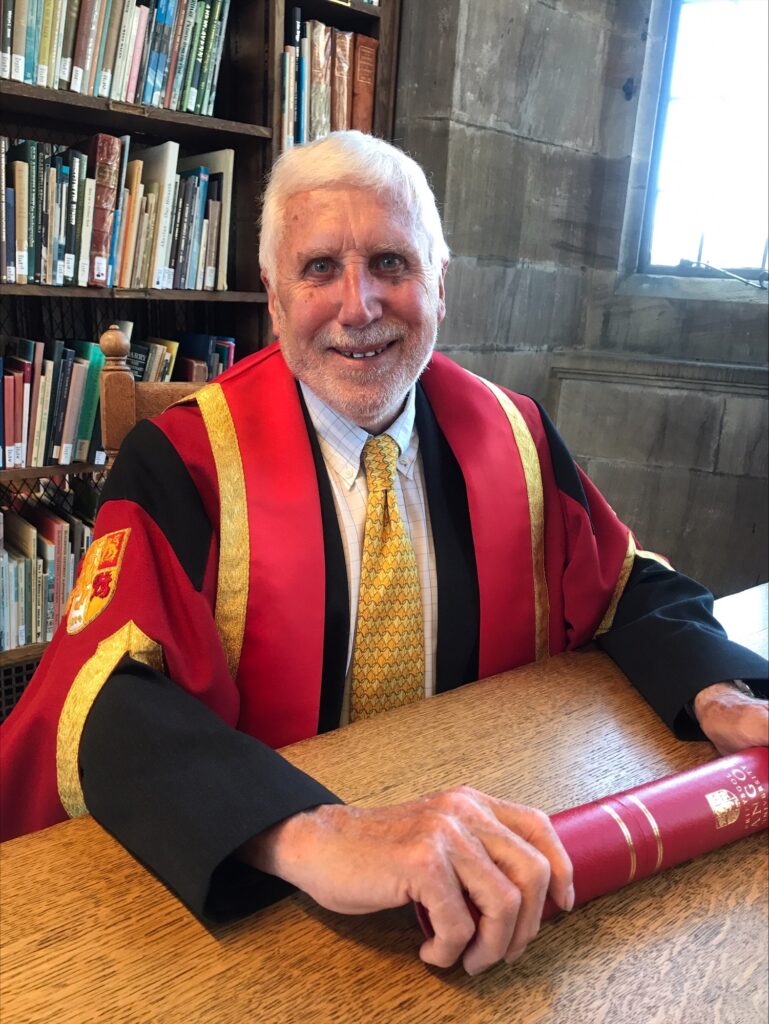Congratulations to the MBA’s Associate Fellow, Dr Keith Hiscock MBE, who has been has been admitted as an Honorary Doctor of Science and to the Company of Honorary Fellows of Bangor University. Keith was awarded the Honorary Degree in recognition of the ‘Outstanding Scholarship and Innovation’ demonstrated by his pioneering work in Marine Protected Areas, species monitoring, and underwater habitats, as well as his leading role in national programmes on marine biodiversity.

Dr Keith Hiscock (c. Keith Hiscock/Ingrid Pedersen)
An experienced diver and skilled underwater photographer, Keith’s fascination with marine life began during his PhD (Marine Biology 1976) at Bangor University (then the University College of North Wales). As well as publishing over 60 journal papers or chapters in books, he has published the books ‘Marine biodiversity conservation: a practical approach’ and ‘Exploring Britain’s Hidden World: a Natural History of Seabed Habitats’. Keith has also advised government bodies, playing a key role in shaping marine policy. In conferring the Honorary Degree, Bangor University praised Keith’s “research, leadership, and commitment to the UK’s marine environment”.
“Graduation is a moment to come together in celebration – to recognise the hard work, dedication, and achievements of every Bangor student. It’s a time to honour not only each graduate’s unique journey to earning their degree, but also to celebrate the remarkable individuals receiving Honorary Degrees. Whether in public service, literature, music, business, sport, or science, their contributions enrich our communities and reflect the values we hold dear. The stories of our graduates and this year’s honorary recipients remind us of the power of perseverance, passion, and the potential to inspire.” Professor Edmund Burke, Vice-Chancellor, Bangor University.
In his acceptance speech to the students, Keith said: “I would like to encourage all of you to make a difference, including by applying science to better understand what brings about change…Trust yourself, use science effectively, including the knowledge that we already have. Do not hesitate to ask those who are older and wiser and do question what just doesn’t make sense from those who advise. You are the future.”